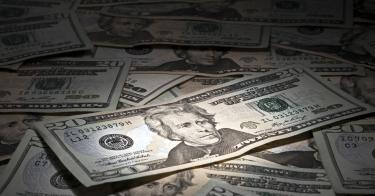The Consumer Financial Protection Bureau (CFPB) now proposes to rescind key provisions of its 2017 payday lending rule. Good. The old rule threatens to starve millions of hard working Americans out of short-term credit markets.
The new proposal would essentially scrap the stringent ability to repay portion of the original rule. That has industry supporters applauding (but calling for more reforms) and industry critics seeing red.
Sen. Elizabeth Warren (D-Mass.), for instance, believes that the new proposal “makes a mockery of the CFPB's statutory mission of protecting consumers.” The truth, though, is that the original rule’s approach to protecting consumers is incompatible with a free society. It rejects the notion that individuals understand what is best for themselves, and mandates that federal bureaucrats decide what is best for people.
The original payday-lending rule is the perfect embodiment of this command-and-control version of consumer protection. The rule requires lenders to certify, under penalty of law, that borrowers have the ability to repay their loans. That requirement reflects two related assumptions: (1) consumers can’t determine when loans are too costly, and (2) lenders want to take advantage of this situation by lending to consumers who can’t possibly repay.
There are several problems with constructing regulations based on such assumptions.
For starters, nobody can possibly know for sure if a borrower is going to make good on his debts. No matter how many financial rules Congress mandates, it is impossible to legislate away the risk that a borrower might default on a loan. (And payday lending is a very risky business. The customers tend to have particularly volatile income, so the CFPB’s original rule, by the agency’s own admission, threatens to destroy the industry.)
Furthermore, it is an exceedingly poor long-term strategy for any lender to seek customers who can’t pay their debts. Some critics argue that, perversely, it pays to have customers who can’t pay their debts because they continue paying fees. Ultimately, though, a customer either pays or doesn’t. To stay in business it is much better to have paying customers.
Even if a lender bases its business on selling bad debts to third party collectors, over time those third party collectors will catch on. They will either raise their prices or stop doing business with such lenders. No matter how you slice it, no business wants to rely on bankrupt customers with no money.
Moreover, the rule is at odds with the fundamental principles of a free enterprise system, replacing voluntary exchanges with those that regulators bless as acceptable. It substitutes a few (unelected) individuals’ preferences for everyone else’s preferences.
Such command-and-control rules runs roughshod over people’s self worth and dignity, having the most harmful effect on the people who need certain products and services the most. It presumes bureaucrats understand people’s circumstances better than people do themselves.
If the tables were turned, and the typical payday customer was making these types of consumer protection rules, they would likely enact rules that those currently in charge would not like very much.
From the view of the average payday customer, it is likely too costly to pay $30 for virgin coconut oil, $8 for a jar of mayonnaise, $225 for a shaving kit (with no razor), $45 for a pack of fancy soaps, $18 for avocado toast, $730 for a pair of shoes, or $85 for a men’s haircut.
There is no moral superiority here. Your average Washingtonian bureaucrat should be able to enjoy his $18 avocado toast in peace, just as the typical payday loan customer should be able to access the short-term credit she needs—even if it costs $20 or $30 to borrow $100.
The reality is that each person makes the best choice he or she can, based on their own circumstances—even if they view each other’s decision as a bad economic choice.
At some future date, each is equally likely to decide that they made bad decisions. Regardless, neither type of consumer should be allowed to make rules that prevent (or dictate) exactly who can buy any of these goods or services.
The best that policymakers can do is to ensure that consumers have all the information they need to make their own decisions. And evidence keeps piling up that payday customers – at least partly due to existing state and federal regulations – have that information. (For another study, see Federal Reserve economist Greg Elliehausen’s work).
Aside from the potential harm it will cause, the evidence shows that CFPB’s payday lending rule was unnecessary. The best way to protect consumers is to scrap the entire payday-lending rule, relying instead on clear and simple rules that reinforce the rule of law.
This piece originally appeared in Forbes



